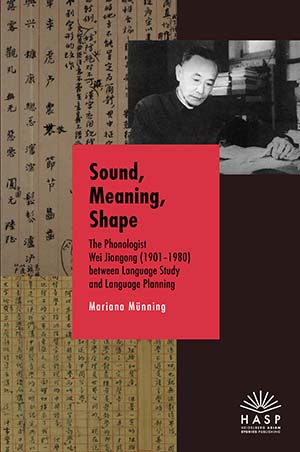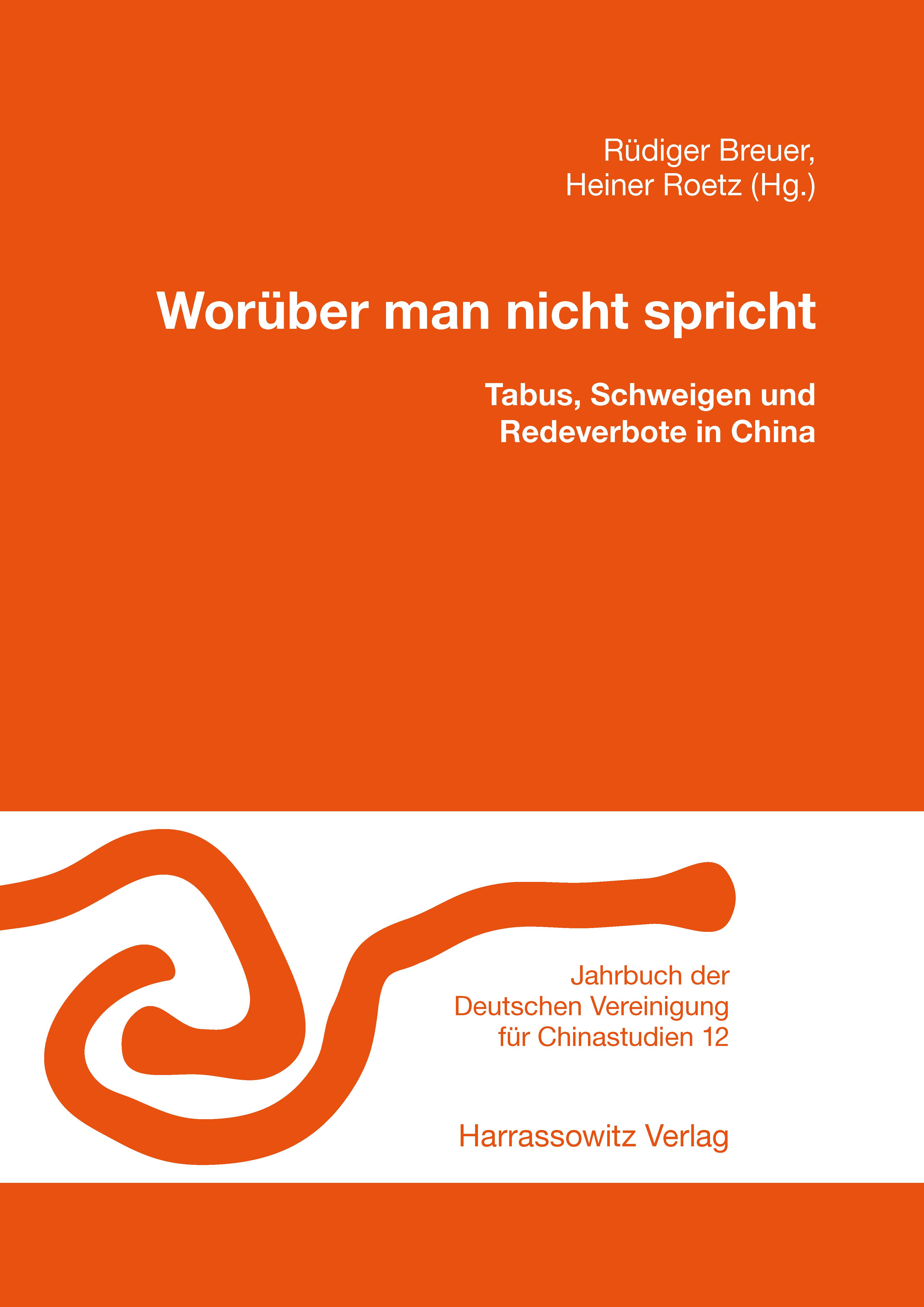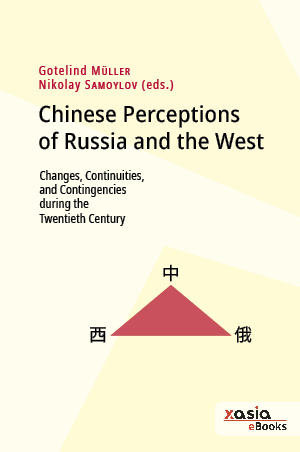Münning, Mariana
Sound, Meaning, Shape: The Phonologist Wei Jiangong (1901-1980) between Language Study and Language Planning
One of the leading proponents of the radical linguistic reforms in 20th century China, Wei Jiangong remains hardly known in the West. This book describes how Wei, who was rooted in traditional philology and conceptualizing language as a tool, helped to promulgate a standard language, led the compilation of the world’s most popular dictionary, and helped to drive script reform. While these measures were characterized as violent intervention in the Chinese language sphere, Wei’s careful negotiating of linguistic description and political prescription illustrates how they also may have been steps that helped to achieve linguistic self-determination.
Reviews
Yurou Zhong, in: China Quarterly (2023), 1-2
Worüber man nicht spricht: Tabus, Schweigen und Redeverbote in China
Selbst auferlegte bzw. gesellschaftlich oder staatlich auferlegte Redetabus haben die chinesische Kulturgeschichte stets ebenso begleitet wie Versuche, sie zu brechen oder zu umgehen. Nicht nur die Philosophie, Historiographie und Literatur haben in diesem Spannungsfeld gestanden, sondern auch das moralische und das bis heute mit Redetabus konfrontierte politische Handeln.
Worüber man nicht spricht versammelt elf Beiträge, die einen Bogen vom chinesischen Altertum bis in die Gegenwart spannen und das Thema aus verschiedenen Blickwinkeln heraus beleuchten. Untersucht werden: Fälle von Inzest in der chinesischen Antike; das Problem häuslicher Gewalt im gegenwärtigen China; die ursprünglich streng vertraulichen „Familienunterweisungen des Zhu Xi“; Ratgeberliteratur zu China mit ihren Empfehlungen und Verboten; die Kritik des republikzeitlichen Schriftstellers und Intellektuellen Lu Xun an Mechanismen der Macht; die Ausrichtung der Forschung zum ‚Buch der Wandlungen‘ (Yijing); politischer Faktionalismus im Einparteienstaat China; der Linguist Wei Jian¬gong und seine Rechtfertigungen sprachpolitischer Maßnahmen; das politische Engagement des Filmschaffenden Shi Hui in den 1940er Jahren sowie die Aktivitäten des Performancekünstlers He Yunchang im politischen und sozialen Kontext der Volksrepublik China. Auf diese Weise entsteht ein facettenreiches Bild von Tabus und Redeverboten in Geschichte und Gegenwart Chinas.
Chinese Perceptions of Russia and the West: Changes, Continuities, and Contingencies during the Twentieth Century
This book aims at investigating changes and continuities in Chinese perceptions of Russia and the West during the 20th century, paying heed to the fact that the respective ascriptions and “frontlines” were historically contingent: who and what represented “Russia“ or “the West“ at a given time and at a given place? Was “Russia“ part of “the West“, or not? And if it was, in which regard? Which factors – foreign or indigenous – led to changes in Chinese perceptions and representations and why? With such questions in mind, this book was taking shape, growing out of a German-Russian project funded by the DFG-RFBR. The German-Russian research team from Heidelberg University and St. Petersburg State University worked on exploring the topic together with colleagues from mainland China and Taiwan, concentrating on three major areas: 1. The field of socialization via a look into normative descriptions of Russia and “the West“ in Chinese school textbooks which define images of the “other/s“ from childhood on; 2. The field of literature and Chinese fictional representations of Russia and “the West“ consumed by a Chinese reading public; 3. The field of visual and material manifestations which define images of the “other/s“ in their own medial way and make them accessible also to a public far from purely discursive levels and to those who do not actively look for them.










